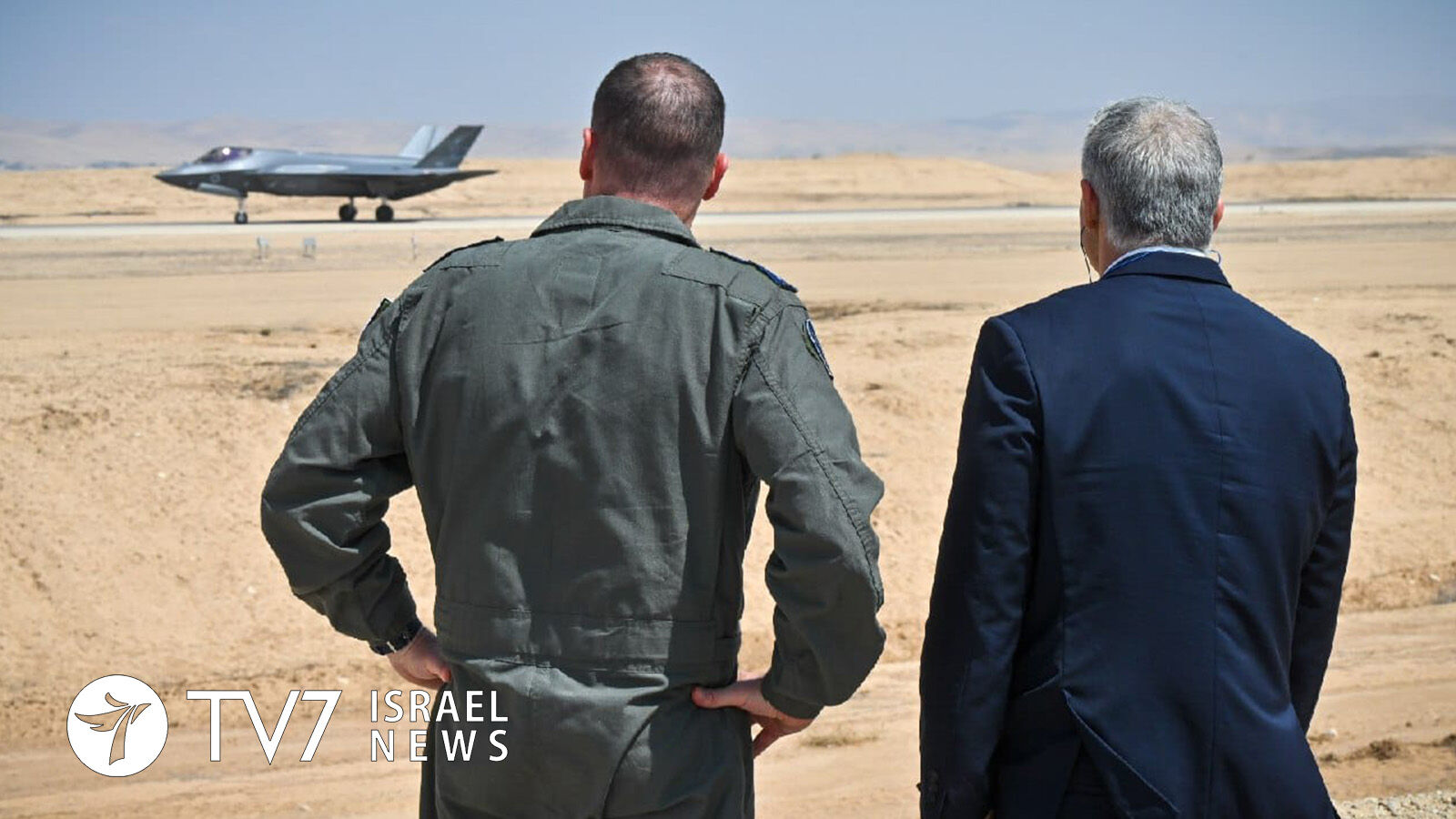Israeli Prime Minister Yair Lapid conducted a tour of the Israel Air Force (IAF) F-35 Golden Eagle Squadron at the Nevatim Air Force Base.
By Erin Viner
Following a security briefing from IAF Commander Major General Tomer Bar, the Israeli Premier visited the operations building and spoke with the 140th Squadron‘s Commander, who can only be identified as Brigadier General ‘M.’
The inspection comes in tandem with the visit by Mossad Director David Barnea to the United States. Lapid said the intelligence chief’s talks are a component of ongoing pressure campaign for the United States to cease efforts to revive the 2015 Joint Comprehensive Plan of Action (JCPOA) nuclear deal with Iran; seen by Israel as an imminent threat to its security.
It is important to note that Head of the Strategy and Iran Division Maj. Gen. Tal Kelman accompanied the Israeli leader on the Nevatim tour, in addition to Lapid’s Military Secretary Maj. Gen. Avi Gil and Nevatim Air Force Base Commander Brig. Gen. Gilad Keinan.
“If Iran continues to test us, it will discover Israel’s long arm and capabilities. We will continue to act on all fronts against terrorism and against those who seek to harm us,” stated Prime Minister Lapid in the strongest possible terms.
He then underscored that Jerusalem will do whatever is necessary to thwart any malign operations by Tehran with Washington’s backing and approval.
“As (US) President (Joe) Biden and I agreed, Israel has full freedom to act as we see fit to prevent the possibility of Iran becoming a nuclear threat,” he said.
Stressing that while “it is too early to know whether if we indeed succeeded in preventing the nuclear agreement,” Prime Minister Lapid reiterated that, “Israel is prepared for any threat and every scenario.”
In related developments, the Iranian Foreign Ministry announced on Monday that it would not compromise on its precondition that the International Atomic Energy Agency (IAEA) cease all investigation into nuclear material uncovered at undeclared locations in the Islamic Republic.
The Vienna Talks official coordinator reacted by saying Iran’s refusal to drop its demand dims hopes for any imminent revival of the JCPOA.
“The last interaction is not converging, it’s diverging – and the positions are not closer” to the “most balanced text” possible presented by the European Union on 8 August, stated High Representative of the European Union Josep Borrell on Monday. While there had initially been “positive feedback” and “reasonable” requests from all partners, he said, it is “very much worrisome” and “the whole process is in danger” if there is no such convergence.”
Saying that the last response from Iran would not help “to close the deal quickly,” the top European Union diplomat stressed, “I’m sorry to say that I’m less confident today than 28 hours before about the convergence of the negotiation process and about the prospects of closing the deal right now.”
